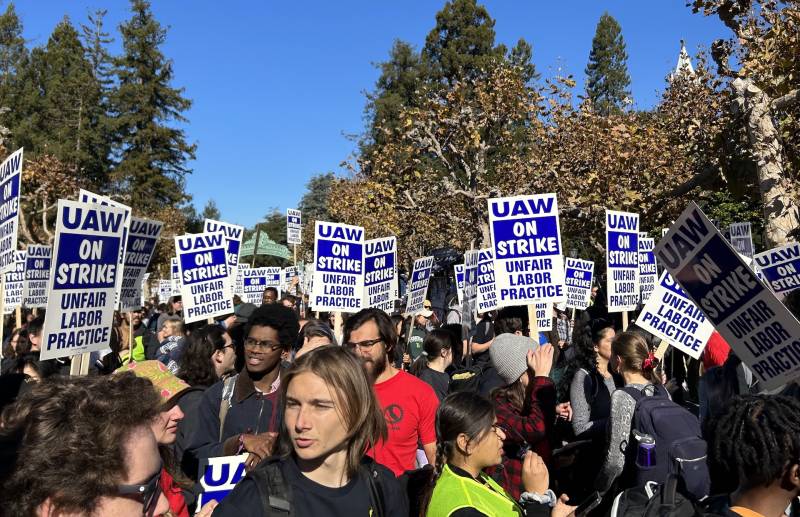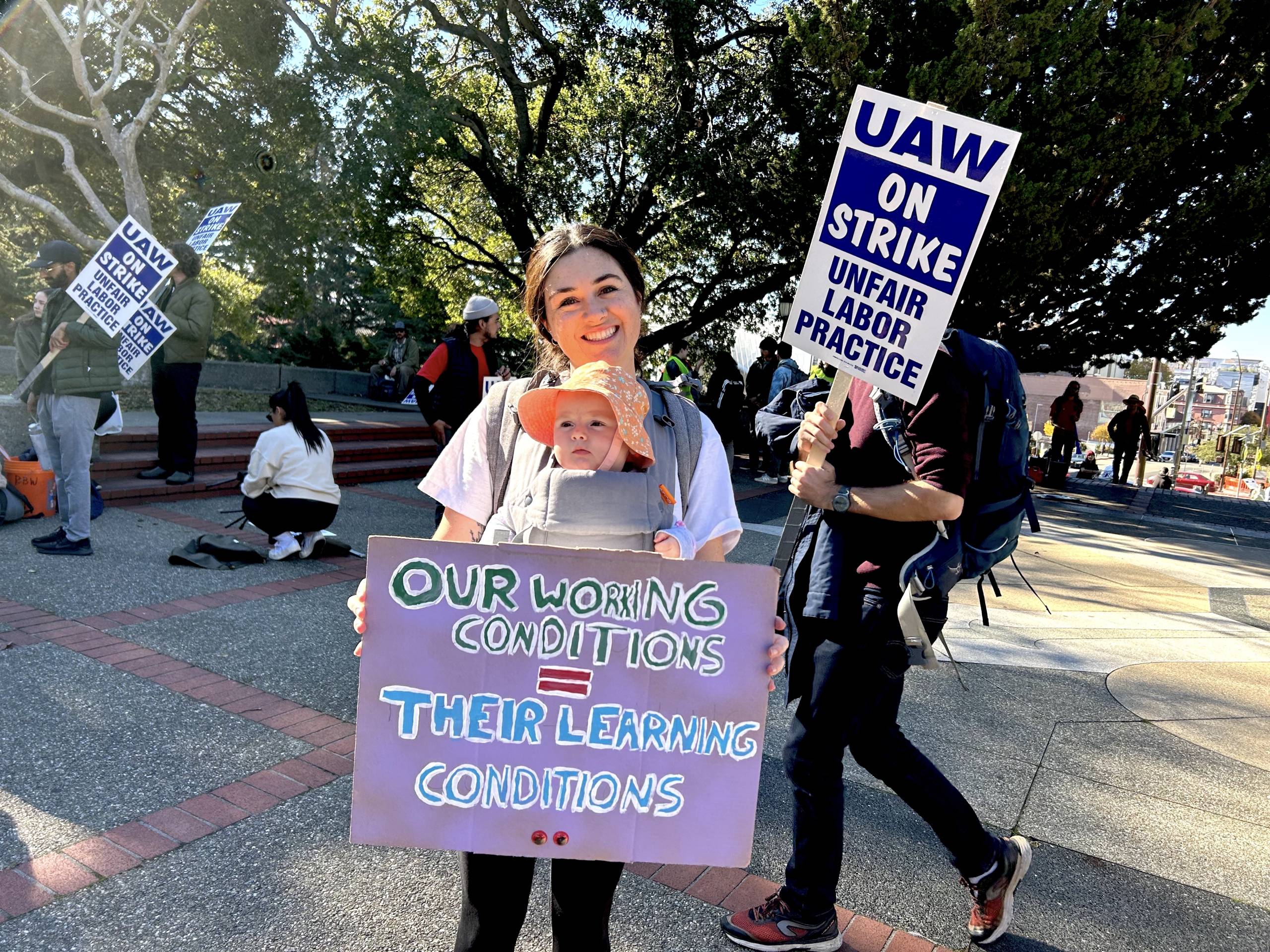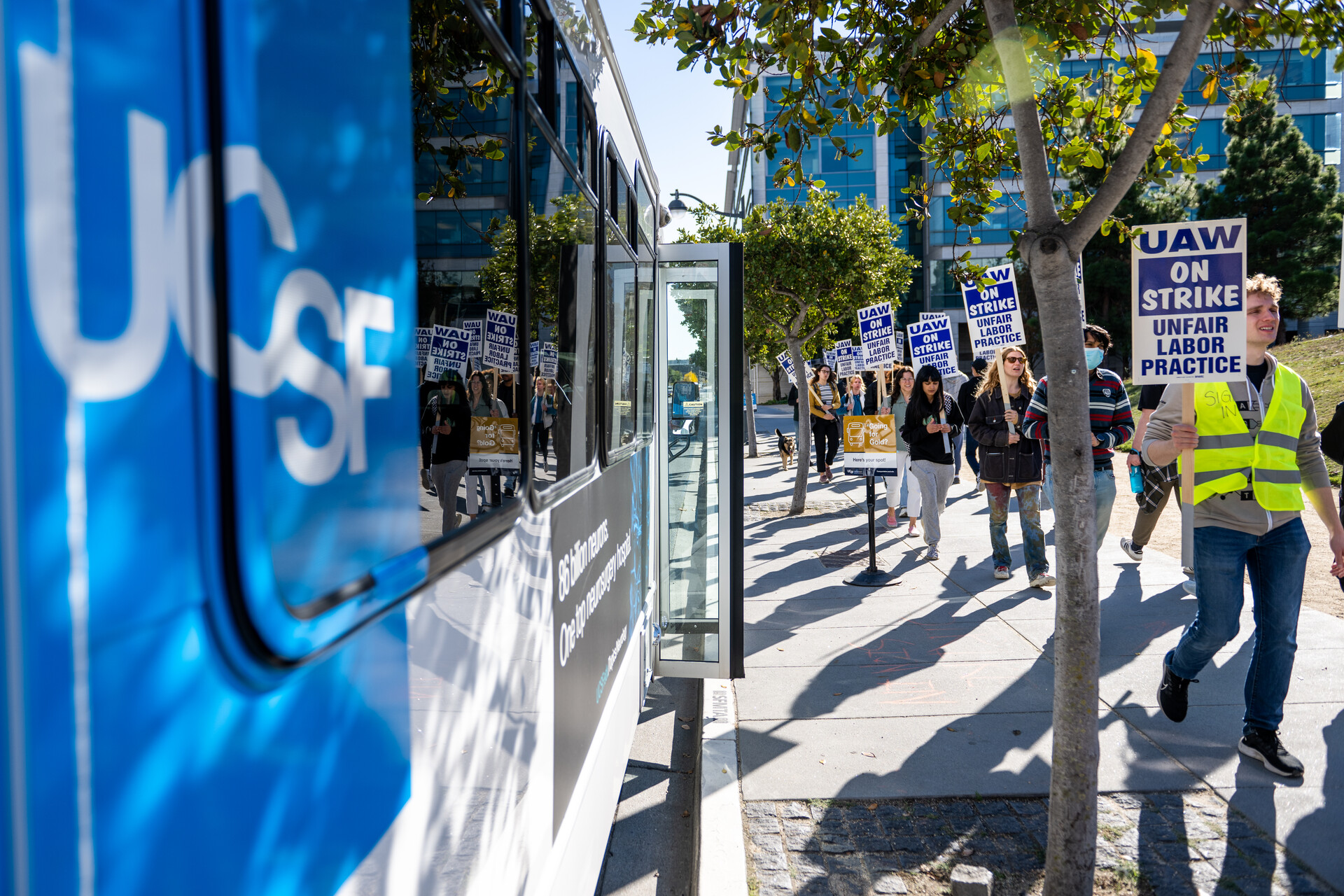Update, 4 p.m. Wednesday: On the third day of a massive open-ended strike among tens of thousands of University of California academic employees, a UC senior leader warned that certain union demands were financially unfeasible for the university to consider.
In a letter to the system’s 10 chancellors (PDF), released Wednesday, UC Provost Michael T. Brown said, “I respect their choice” to strike, and acknowledged the “significant challenge” that California’s soaring housing costs create for students and employees.
But he said that the union demand to tie compensation to housing costs “could have overwhelming financial impacts on the University.”
“One review of the Union’s proposal predicts an annual unfunded obligation of at least several hundred million dollars, with inflationary pressure and no cap,” he said.
Brown also pushed back against the demand to waive out-of-state tuition for international scholars.
“If we were to provide remission of out-of state supplemental tuition, non-California student employees would in effect receive a larger compensation package than California resident student employees for doing the same work,” he said.
Brown noted that the university is offering academic workers multiyear pay raises — including up to 10% increases within the first year.
But that is far short of the 100% increases the union is pushing for. Organizers argue their demands are essential for academic workers to earn a living wage, and would total no more than 3% of UC’s entire $44 billion budget.
“It’s the money that we need to be able to address the cost of living and housing in California,” said Neal Sweeney, president of United Auto Workers Local 5810, which represents postdoctoral instructors.
Academic workers have long been underpaid and undervalued, he added, noting that “our work brings in about $5 billion in research grants each year.”
On Wednesday, the California Labor Federation, which sanctioned the strike, called on guest speakers and elected officials to cancel scheduled events at UC campuses until a fair agreement is reached. But organizers stopped short of asking students to boycott classes.
Original post, 1 p.m. Monday: Nearly 48,000 University of California academic workers across the 10-campus system walked off the job Monday, demanding better pay and benefits in what organizers are calling the largest strike in the history of U.S. higher education.
The strike by researchers, postdoctoral scholars, tutors, teaching assistants and graders – including scores of workers at UC Berkeley and the Lawrence Berkeley National Laboratory – threatens to disrupt instruction across the university system, just weeks ahead of final exams.
At campuses across the state, picket lines went up at 8 a.m., with workers — represented by various local chapters of the United Auto Workers — insisting they need significant pay raises to afford to live in cities like Los Angeles, San Diego and Berkeley, where housing and other living costs have soared.
“Extremely low compensation — many workers make less than $24,000 a year — is leaving workers severely rent-burdened and struggling to remain in academia,” Rafael Jaime, president of United Auto Workers 2865, which represents some 19,000 academic workers involved in the strike, said earlier this month. “UC’s failure to support a diverse workforce undermines the quality of research and education across the system.”
Contract talks produced “good progress” on Monday, but UC negotiators subsequently informed the union that they wouldn’t resume bargaining until Wednesday, according to Jaime.
“Workers are really frustrated by the slow process so far,” he said while demonstrating at UCLA, where he’s a teaching assistant. “They’re willing to be out here for as long as it takes.”



